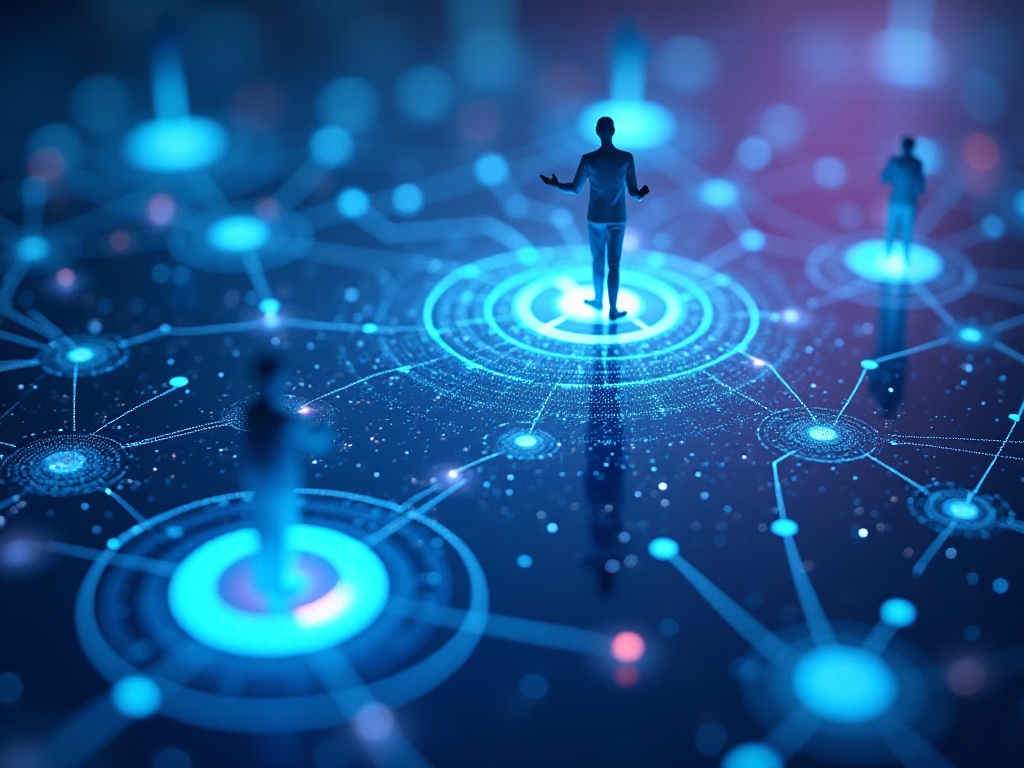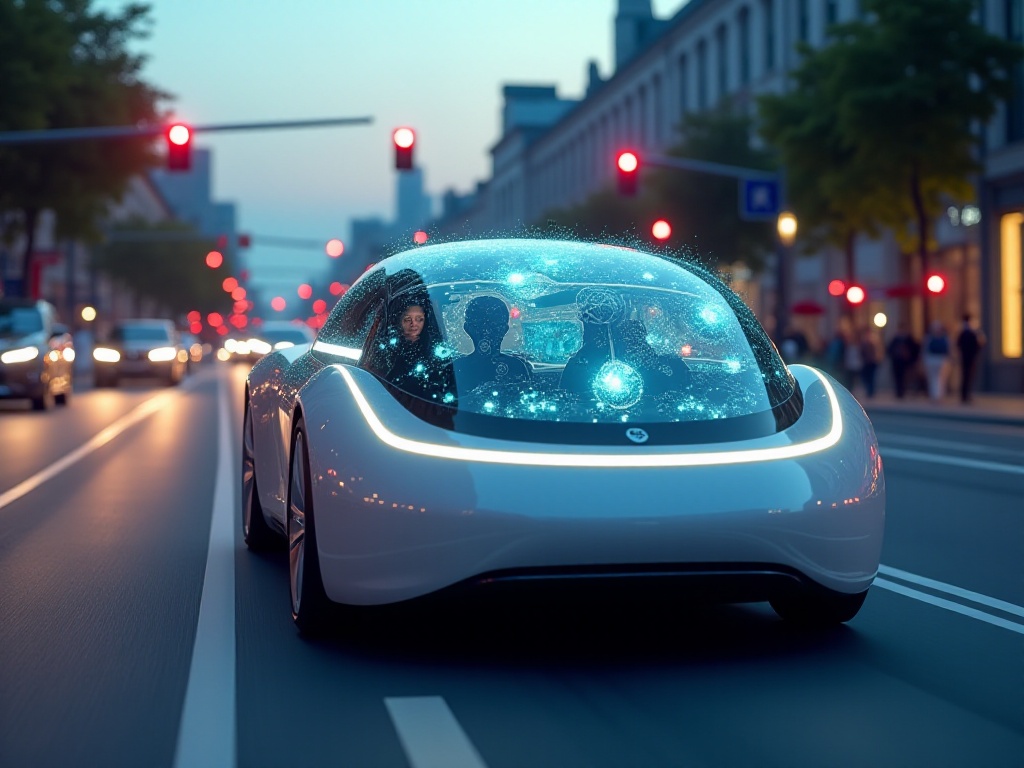Opening Thoughts
Hello readers, I've noticed more and more marketers around me starting to use AI tools to optimize their daily work. As a marketing veteran with over a decade of experience, I'm actively embracing this technological revolution. Today, I'd like to share how I've been applying AI technology in my marketing work.
To be honest, the marketing field is evolving rapidly, especially with the emergence of AI tools, which has brought a major technological innovation to the entire industry. Recently, while dining with some colleagues, we all agreed that marketers who don't use AI today are like marketers who couldn't use computers in the past - they'll eventually be phased out by the market.
That said, AI tools have indeed solved many practical problems for us. For example, we used to work overtime on proposals, but now we can generally leave work on time; we used to rack our brains for creative ideas, but now AI helps expand our thinking, bringing inspiration faster and more abundantly. So today, I'll share some of my experiences, hoping to provide some insights for fellow marketers.
Cognitive Breakthrough
It's quite interesting - when I first encountered ChatGPT last year, I was genuinely resistant. I thought this thing was too powerful, writing copy faster than me, generating more ideas than me - wasn't it going to put us veteran marketers out of work?
But as I used it more, I realized I had oversimplified things. AI is indeed powerful, but it's more like a super assistant rather than a competitor. For instance, when you ask it to write copy, it can produce a decent version, but to make that copy truly touch people's hearts still requires marketers' experience and creativity to elevate it.
I remember once when I was working on a cosmetics marketing proposal, I tried using ChatGPT to help organize the framework. After inputting information about product positioning, target audience, and competitive analysis, it immediately generated a very detailed proposal framework. This framework was not only logically clear but also included many points I hadn't thought of before. With this framework as a foundation, I could enter a creative state faster and focus more energy on making the proposal stand out.
Moreover, I discovered that AI can help us not just with proposals but also with daily work. Things like research, competitive analysis, writing weekly and monthly reports - tasks that used to take a lot of time can now be quickly completed through AI. This allows us to spend more time and energy on work that truly requires human creativity.

Practical Experience

Content Creation
When it comes to content creation, this might be one of AI's strongest areas. I remember taking on a beauty brand project that required writing ten articles in different styles. Traditionally, just the conceptualization and writing would have taken a week. But with an AI assistant, the entire process became incredibly efficient.
Here's my approach: First, I have AI generate multiple article frameworks based on product features and target audience. Some frameworks lean towards educational content, introducing product ingredients and effects; some are story-based, narrating user experiences; others are topic-based, discussing current trends.
Then, I set different writing styles and keywords for each framework. For example, for young users, I ask AI to use a light and lively tone with some internet slang; for career women, I request a more mature and steady tone, emphasizing product professionalism.
Finally, I manually optimize and adjust the AI-generated content. This step mainly involves adjusting language style and adding some personalized expressions to ensure the content is both professional and warm. Using this method, I completed initial drafts of all articles in just one day.
In practice, I've found that the vast majority of marketers now use AI tools to some extent in content creation. According to research by a consulting firm, using AI for content assistance can increase production efficiency by about 300% and significantly improve creative quality. This is because AI can quickly provide multiple creative directions, helping us break out of fixed thinking patterns and spark more inspiration.
User Insights
In terms of user insights, AI's capabilities are equally impressive. Last year, our team took on a social media marketing project that required analyzing target users' discussions and sentiment across various platforms. This type of work used to be extremely time and labor-intensive, requiring extensive manual data collection and analysis.
But with AI tools, we completed the analysis of over 100,000 user comments in just three days. AI could not only quickly identify comment sentiments but also summarize users' most concerning topics and pain points. For example, we found many users discussing sensitive ingredients when talking about product composition, which helped us better emphasize product safety and gentleness in subsequent marketing communications.
Moreover, AI analysis helped us discover some unexpected user needs. For instance, we found many users posting usage experiences at night, which inspired us to develop a "Night Skincare Guide" marketing campaign that was particularly successful. This kind of deep user insight would have previously required multiple user interviews to obtain.
What impressed me most was AI's ability to predict user behavior trends. By analyzing historical data, it could predict when certain topics might become popular, which was especially helpful for developing marketing strategies. For example, we prepared seasonal marketing content in advance, so when related topics started trending, our content was ready to capture user attention immediately.

Advanced Applications

Performance Monitoring
Regarding marketing performance monitoring, this might be one of the biggest surprises AI technology has brought me. I remember doing a multi-channel marketing campaign involving social media, KOL collaboration, offline events, and various other channels. In traditional marketing models, monitoring the effectiveness of so many channels in real-time was very difficult, and often by the time we discovered a channel wasn't performing well, most of the budget had already been spent.
But everything changed with AI systems. The system can monitor key indicators across all channels in real-time, including exposure, engagement rate, conversion rate, ROI, and more. Even more impressive is its ability to automatically adjust deployment strategies based on this data. For instance, if it discovers that a particular KOL's content is performing exceptionally well, the system will automatically increase budget allocation to that channel; if it notices a declining conversion rate in a channel, it will promptly remind us to optimize content or adjust strategy.
Through this intelligent performance monitoring and budget adjustment, our project's return on investment improved by nearly 40% compared to traditional methods. This data shows that AI not only helps us save manpower but more importantly helps us make smarter marketing decisions.

Scenario Innovation
In terms of scenario innovation, AI has also performed exceptionally well. Many brands are now trying to use AI to create innovative marketing scenarios. A recent FMCG project I participated in is a good example.
The initial challenge of this project was that we needed to create numerous product display images for different scenarios, but traditional on-site photography was not only costly but also difficult to produce enough materials in a short time. So we decided to try using AI to generate scenario images.
We first collected extensive user scenario feedback to understand in what situations users would use this product. Then we used this information to guide AI in generating images. AI could quickly generate thousands of different scenario product display images, and each scenario could precisely express the product's use case and core selling points.
More surprisingly, through A/B testing, we found that some AI-generated scenario images actually converted better than real photographs. This might be because AI can more accurately capture users' aesthetic preferences and create more idealized visual effects.

Future Outlook
Watching the rapid development of AI technology, I believe the marketing industry will undergo revolutionary changes in the future. But these changes won't be the "machines replacing humans" scenario we initially feared, but rather the dual enhancement of efficiency and creativity brought by "human-machine collaboration."
Taking myself as an example, through this year's AI practice, my work efficiency has improved by at least 50%. And because I've reduced many repetitive tasks, I can invest more time in thinking about strategy and creativity. This transformation has made my work more valuable and more fulfilling.
I think the core capability future marketers need is "AI thinking" - knowing what AI tools to use in what scenarios, and how to combine AI's efficiency advantages with human creative advantages. Only by truly mastering this mindset can one maintain competitiveness in the future marketing industry.
Moreover, with the advancement of AI technology, I believe more innovative marketing application scenarios will emerge. For example, in the future when we do marketing planning, AI might not only help us generate proposals but also simulate how different proposals would perform in the market, helping us choose the optimal plan. Or AI might be able to analyze consumer emotion changes in real-time, helping us adjust marketing strategies promptly.
Of course, no matter how powerful AI tools become, they're still just tools. Using tools well still requires continuous exploration and optimization in practice. Every brand and product has its unique characteristics, and how to use AI tools to highlight these features and create unique marketing value is something we need to continuously think about and explore.
Finally, I want to say that embracing AI isn't a choice, it's a required course. But fortunately, this course is very interesting, and during the learning process, you'll find your marketing capabilities continuously improving, which feels really great.
So, what are your thoughts on AI marketing? What experiences have you had using AI tools? Feel free to share and discuss in the comments!







